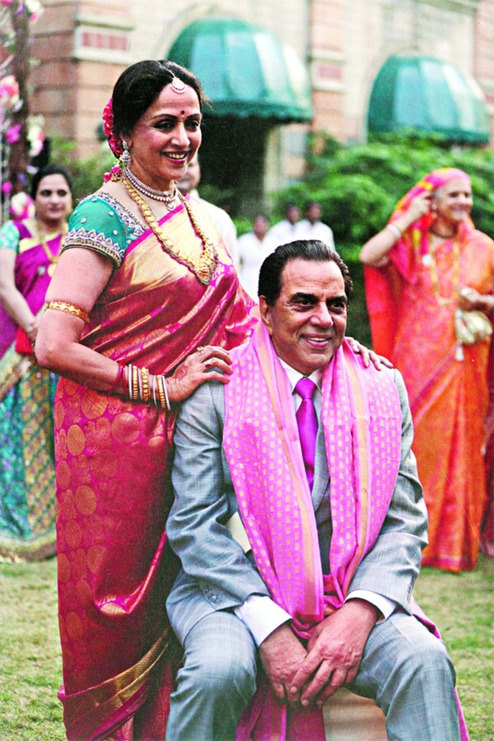

It is often said that we should not judge a book by its cover. But if there is a beaming Hema Malini on the cover, it is fairly difficult to not judge a book favourably. However, the author, Ram Kamal Mukherjee, has also given the readers other reasons to like Hema Malini: Beyond the Dream Girl. In a world where biographers, increasingly, resort to sensationalism to sell copies, Mukherjee has taken utmost care not to hurt sentiments. The credit for which must go to the veteran Bollywood actor, Hema Malini, too - for this is an authorized biography.
Controversies surrounding the filmstar's life and career have been taken up in due course. But this has not been done with the sole aim of grabbing headlines or getting back at others. (There is thus more than a possibility that those who cannot do without their dose of celebrity gossip would feel disappointed with Mukherjee's account.) The book, as the subtitle suggests, seeks to bring to the fore little known aspects of Hema Malini's life - the reel and the real. Here we see the star of Seeta Aur Geeta in a range of roles - not just as the leading Bollywood heroine of the 1970s, but also as a parliamentarian, mother, daughter, wife, producer, director, classical dancer, television artist and much more.
Considering that Mukherjee is not a big fan of hyperbole or excess, there was a real danger of the book turning out to be unexciting. But his skills as a story-teller, combined with funny anecdotes shared by the matinee idol, will liven up the experience of the reader.
There is a portion where Hema Malini recounts her father's habit of trying to squeeze in between her and Dharmendra in a car while they were on their way to shoots so as to prevent the two love birds from courting each other. But each time Dharmendra would come up with a plan to get in from Hema's side. Then, at another place, she goes on to talk about, apparently, being attacked by a ghost at a bungalow in Juhu.
In the final analysis, Mukherjee's work has all the qualities that made Hema's films popular in her heyday. Just like those movies, this book has a bit of everything: romantic liaisons, struggles, heartbreak, failures, comic relief and the ultimate triumph of hard work and perseverance over serious obstacles.
There is no reason why this book should meet the same tepid response that greeted an earlier biography of Hema by a different author. The balance that Mukherjee has struck in this book is quite hard to accomplish.











